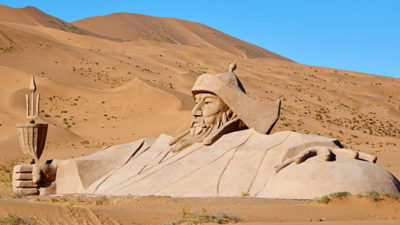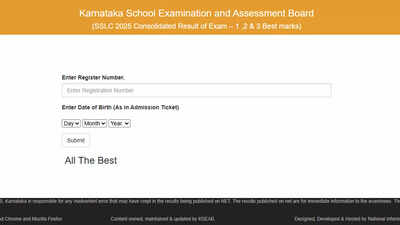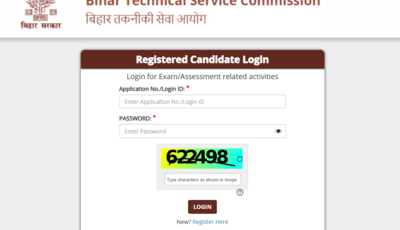The great Khan and one of the most influential Mongol rulers, Genghis Khan was born in 1162 in the Khentii Mountains of Mongolia. His life combined moments of terror, wonder, and sheer disbelief with an undeniable legacy that shaped history. Some research even suggests his conquests killed so many people that the earth’s temperature may have dropped due to reduced carbon dioxide levels.Most people associate his reign with brutality, and rightly so. However, in a 12th-century setting where expanding empires, accumulating wealth, and securing historical immortality were the ultimate goals, his actions weren’t particularly unusual for a ruler of his time. Khan was simply a warrior of extraordinary skill whose mastery of battlefield tactics and political administration produced results that remain remarkable centuries later.
A conqueror who couldn’t read
What surprises many, however, is that this infamous leader most likely couldn’t read or write. Historian Jack Weatherford notes that Khan “probably encountered no more than a few hundred people in his entire childhood, and he received no formal education.” Other biographical accounts suggest he relied entirely on courtiers to read and write laws for him, as he lacked these abilities himself.Yet this illiteracy didn’t prevent him from championing one of history’s most revolutionary educational movements. Khan ensured that people throughout his empire became skilled and well-educated. He mandated the adoption of a writing system, eliminated taxes completely for doctors, teachers, priests, and educational institutions, and laid groundwork that would inspire his grandson, Khubilai Khan, to attempt creating primary schools for universal basic education to make literacy available to all children.Despite never learning to read, Khan understood something fundamental about power and progress that continues to influence educational thinking in the 21st century.
Written governance trumped the prevalent oral traditions
Khan recognised something crucial; an empire built solely on verbal commands and collective memory could never compete with the sophisticated, literate civilisations he intended to conquer. This realisation led to a dramatic decision that would transform Mongol society forever.After establishing his empire, Khan mandated the creation of a writing system for official state business. Based on Uighur script, this system ensured that “his decisions [could be] kept on white paper bound in blue books.” This simple yet revolutionary step marked the birth of written Mongolian law and formal record-keeping.Though Khan himself never learnt to read, he understood the power of documentation. He established a new class of educated officials and empowered scribes to handle the empire’s written affairs. Within just one generation, the entire structure of Mongol administration had shifted from relying on memory to depending on written communication. Laws became synonymous with written records, establishing literacy as a cornerstone of power and organised governance.
A court of intellects, an empire of literates
Khan’s commitment to learning extended far beyond creating a writing system. He implemented policies that seem remarkably progressive even by today’s standards. Teachers, scholars, and educational institutions were exempted from taxation, a bold move designed to elevate the status of learning professions.His court became a melting vessel of international knowledge. Doctors, priests, intellectuals, translators, and artists from across Asia, Europe, and the Arab world were welcomed and encouraged to share their expertise. This deliberate policy of intellectual openness transformed the Mongol Empire into an unprecedented centre of global learning and cultural exchange.The foundation Khan laid proved remarkably durable. His grandson, Khubilai Khan, later attempted to establish schools for all children throughout the empire, aiming for universal basic literacy among the empire’s incredibly diverse population. This ambitious goal preceded similar educational movements in other parts of the world by several centuries.
Effect was far reaching and a case study for generations
The educational transformation Khan initiated had effects that lasted far beyond his lifetime. His policies reshaped entire cultures, strengthened governmental institutions, and positioned the Mongol world as a hub for cross-cultural intellectual exchange.Many concepts we consider fundamentally modern trace their roots back to these 13th-century reforms. State funding for education, international academic cooperation, the central role of written law in governance, and societal respect for teachers and scholars all emerged from Khan’s vision.
Echoes and shadows of a system that must be remembered
Today, Khan’s core principles remain strikingly relevant. His tax exemptions for educators mirror modern policies where countries like Finland and several US states offer tax breaks and loan forgiveness to teachers. The international scholar exchange he pioneered resembles contemporary programmes like Fulbright scholarships and the European Union’s Erasmus initiative, which bring together academics from different nations to share knowledge.The Mongol Empire’s documentation-based governance system established principles that underpin modern bureaucratic states, where written records and legal frameworks form the foundation of administration.Perhaps most significantly, Khan’s recognition that leaders need not be scholars themselves but must lead a system based on learning, resonates in contemporary discussions about educational leadership. His story challenges assumptions about who can drive educational reform, suggesting that vision and institutional support matter more than personal academic credentials.It’s iconic that someone described as an “illiterate slave” who built an empire continues to serve as a model for understanding how educational transformation occurs. Here was a man who never read a single word yet created institutional frameworks so robust that they promoted learning and documentation long after his death, frameworks whose core principles still guide educational policy in the 21st century.All facts and quotations in this article are drawn from Jack Weatherford’s “Genghis Khan and the Making of the Modern World.”






